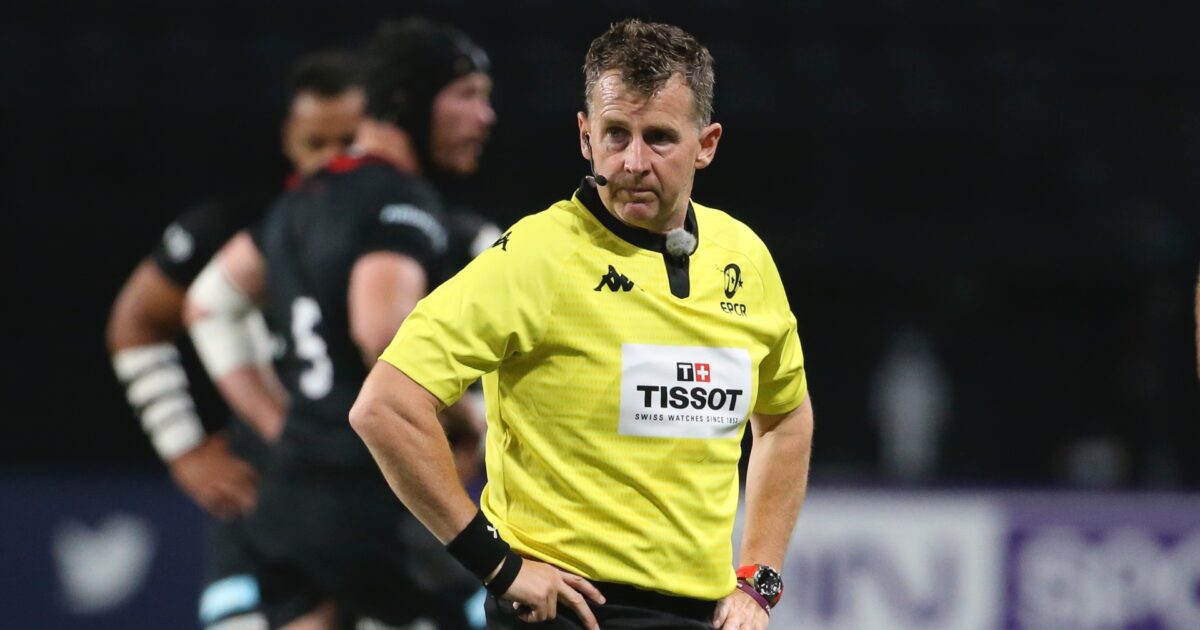Match referee Nigel Owens has had his say on Saturday's Exeter vs Racing final

Nigel Owens doesn’t believe the absence of spectators will negatively impact on the calibre of next Saturday’s Champions Cup final between Racing and Exeter at Bristol. The 2020 showpiece will be the eighth Anglo-French decider in 25 years and the veteran Welsh referee’s seventh final in that time.
He was also the referee in charge when a tournament record attendance of 82,208 attended the famed all-Ireland semi-final meeting of Leinster and Munster at Croke Park in 2009.
Eleven years later, the 2020 final was pulled from Marseille earlier in the year due to the pandemic and the fixture will now go ahead instead in England with zero fans present.
Owens, though, expects a Champions Cup final packed with the usual high intensity to materialise despite the absence of noise and colour in the stands.
“It’s certainly going to be very different to what we are used to with no spectators and stuff, but it doesn’t take away the intensity of the match itself,” he said during a breakfast TV appearance on Irish channel Virgin Media.
Poor Nigel described it as a 'nightmare' ?https://t.co/zaDSPpgeZp
— RugbyPass (@RugbyPass) October 11, 2020
“There is going to be a new winner on the cup and two great form sides as well, very different in their style, so that is going to be very interesting for the rugby purest and very interesting to referee as well. It’s going to be a Test match level, there’s no doubt about that, the intensity of a Test match.”
Asked what the Covid protocols are like for match officials compared to players, Owens said they were “slightly” different. “I get tested for Covid every Monday or Tuesday depending on what day it is.
“I go down to Parc Y Scarlets and then you are not self-isolating for the rest of the week but you are sensible in what you do. I’m on the farm and stuff, I don’t go to places I don’t really need to go. You are very sensible about that.
“We’ll travel separately to the hotel on Friday night. We’ll stay and eat in the hotel and won’t go out. We will limit the risk of picking anything up and you follow all the protocols.
“Then when you get to the stadium it’s like the players do, wear your masks… it’s probably slightly different to players because as players you train as a group and as a team but as a referee, we can now train individually and on our own which is much easier as a referee.”
'I had it in my head I wanted to coach because I was only 23 and thought I was going to be finishing up with injury'
– Ex-Munster scrum-half @mikeprendergas3 on the adversity that ignited his @ChampionsCup final journey with @racing92
???@heagneylhttps://t.co/B8pSBnu0LP
— RugbyPass (@RugbyPass) October 11, 2020
























































